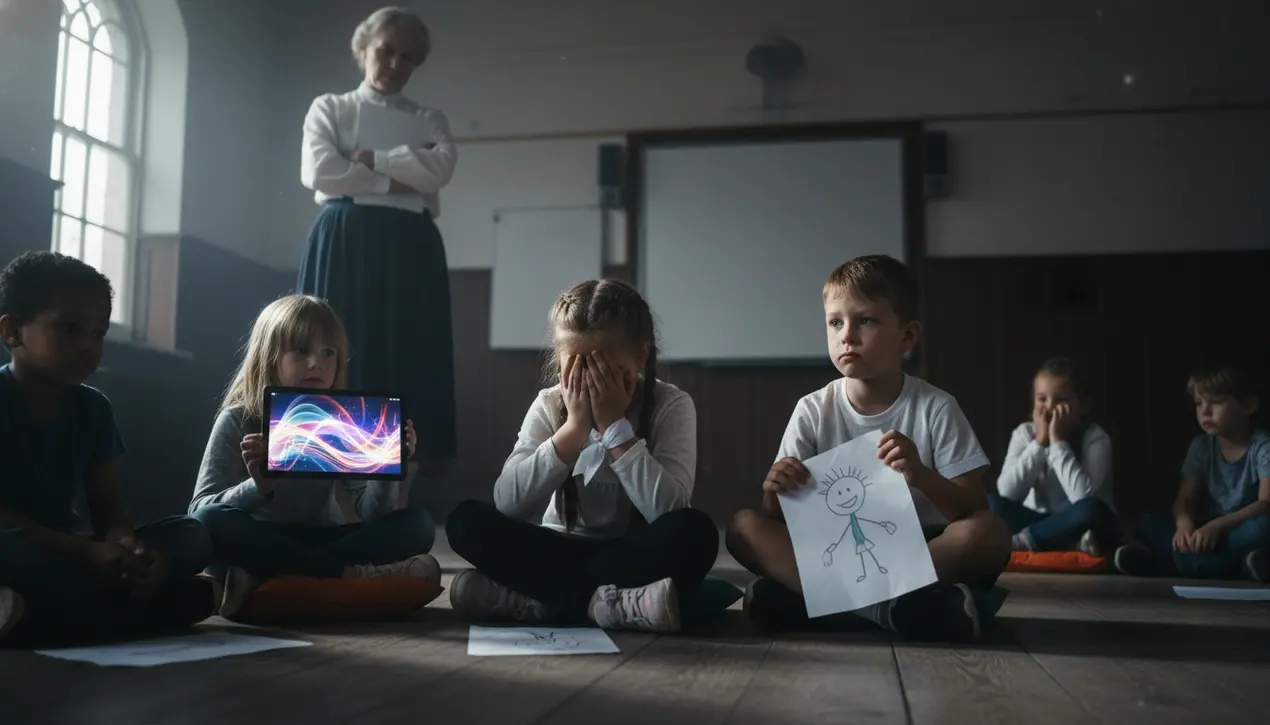
Entertainmentculture & trends
Children Banned from Singing KPop Songs at Christian School
JE
Jessica Stone
2 hours ago7 min read2 comments
In a move that's more dramatic than a K-drama cliffhanger, a UK primary school has dropped the beat on students singing songs by the K-pop group KPop Demon Hunters, declaring the music makes some in its community 'deeply uncomfortable. ' The Lilliput Church of England Infant School, a place you'd typically associate with nursery rhymes and hymns, has suddenly found itself at the center of a global culture clash, sparking debates from Seoul to Surrey about censorship, generational divides, and the powerful, often misunderstood, force of Hallyu.This isn't just about banning a catchy tune; it's a microcosm of the ongoing tension between traditional institutional values and the borderless, hyper-connected world of youth culture. KPop Demon Hunters, for the uninitiated, are known for their high-energy performances and themes that often blend fantasy and rebellion, a far cry from the gentle melodies of 'Jesus Loves Me.' The school's decision, while likely intended to maintain a specific moral and spiritual environment, inadvertently highlights a massive generational gap. For the children, these songs are just infectious pop anthems, the same way previous generations obsessed over The Beatles or Spice Girls, but for the administrators and some community elders, the lyrics and imagery might represent an unfamiliar and secular invasion.This scenario feels ripped right from a Netflix series, pitting the earnest, rule-bound authority figures against the vibrant, globalized passions of the digital-native kids. The ban raises critical questions: where is the line between protecting a community's values and stifling cultural expression? Is the discomfort rooted in the music's content, or is it simply a reaction to its foreign origins and overwhelming popularity? Experts in child development might argue that engaging with global pop culture can be a form of social currency and identity formation for young children, while theologians might debate the compatibility of such music within a faith-based education framework.The fallout is real—imagine the playground whispers, the disappointed kids who practiced the dance moves, and the parents caught between supporting the school and seeing their children's genuine enthusiasm being curtailed. This single policy at a small infant school echoes larger, global conversations about how institutions navigate a world where a viral TikTok dance can have more influence than a textbook. It’s a reminder that in 2025, the battleground for cultural values isn't always in grand political arenas; sometimes, it's in a classroom where a group of five-year-olds just want to sing their favorite song.
#K-pop
#Christian school
#music ban
#cultural conflict
#education policy
#featured
Stay Informed. Act Smarter.
Get weekly highlights, major headlines, and expert insights — then put your knowledge to work in our live prediction markets.
Comments
Loading comments...
© 2025 Outpoll Service LTD. All rights reserved.